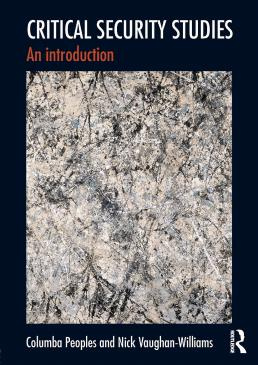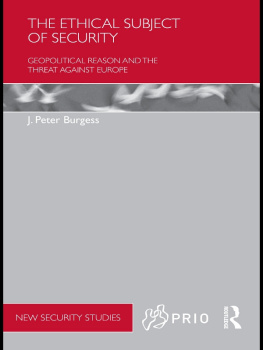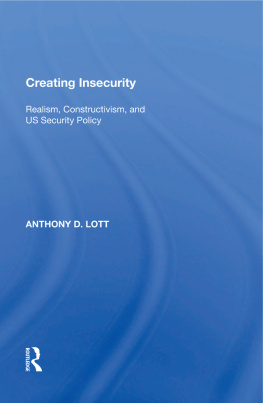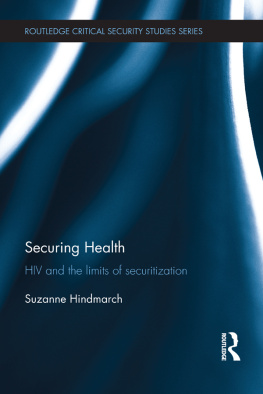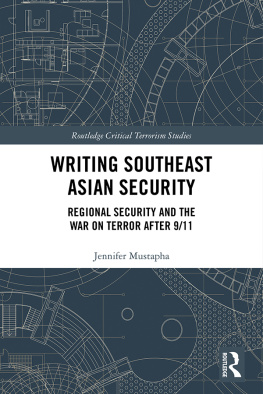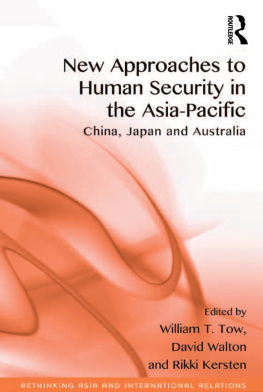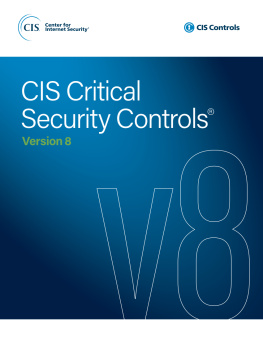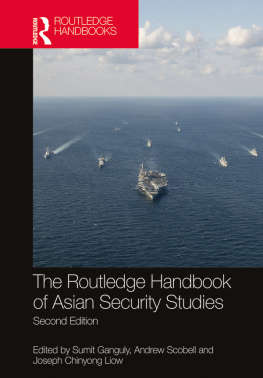
Critical Security Studies
A much needed book. Combining a systematic overview of the evolution of critical security studies with a compelling account of todays complex and vibrant debates, it is both an excellent introduction to the subject and a substantial contribution to its development.
Michael C. Williams, University of Ottawa, Canada
Critical Security Studies introduces students of Politics and International Relations to the sub-field through a detailed yet accessible survey of emerging theories and practices.
Written in an accessible and clear manner, this textbook:
offers a comprehensive and up-to-date introduction to critical security studies
locates critical security studies within the broader context of social and political theory
evaluates fundamental theoretical positions in critical security studies against a backdrop of new security challenges.
The book is divided into two main parts. The first part, Approaches, surveys the newly extended and contested theoretical terrain of critical security studies, and the different schools within the subdiscipline, including Feminist, Postcolonial, and Poststructuralist viewpoints. The second part, Issues, then offers examples of how these various theoretical approaches have been put to work against the backdrop of a diverse range of issues in contemporary security practices, from environmental, human, and homeland security to border security and the War on Terror.
The historical and geographical scope of the book is deliberately broad and readers will be introduced to a number of key illustrative case studies. Each of the chapters in , with clear internal referencing allowing the text to act as a holistic learning tool for students.
This book will be essential reading for upper-level students of Critical Security Studies, and an important resource for students of International/Global Security, Political Theory, and IR in general.
Columba Peoples is Lecturer in International Relations in the Department of Politics, University of Bristol, UK.
Nick Vaughan-Williams is Assistant Professor in International Security in the Department of Politics and International Studies, University of Warwick, UK.
Critical Security Studies
An introduction
Columba Peoples and Nick Vaughan-Williams
LONDON AND NEW YORK
First published 2010
by Routledge
2 Park Square, Milton Park, Abingdon, Oxon OX14 4RN
Simultaneously published in the USA and Canada
by Routledge
270 Madison Avenue, New York, NY 10016
Routledge is an imprint of the Taylor & Francis Group, an informa business
This edition published in the Taylor & Francis e-Library, 2010.
To purchase your own copy of this or any of Taylor & Francis or Routledges collection of thousands of eBooks please go to www.eBookstore.tandf.co.uk.
2010 Columba Peoples and Nick Vaughan-Williams
All rights reserved. No part of this book may be reprinted or reproduced or utilised in
any form or by any electronic, mechanical, or other means, now known or hereafter
invented, including photocopying and recording, or in any information storage or
retrieval system, without permission in writing from the publishers.
British Library Cataloguing in Publication Data
A catalogue record for this book is available from the British Library
Library of Congress Cataloging-in-Publication Data
Peoples, Columba.
Critical security studies: an introduction/Columba Peoples and Nick Vaughan-Williams.
p. cm.
1. Security, International. 2. National security. I. Vaughan-Williams, Nick. II. Title.
JZ5599.P46 2010
355'.033dc22
2010002178
ISBN 0-203-84747-4 Master e-book ISBN
ISBN10:0-415-48443-X (hbk)
ISBN10:0-415-48444-8 (pbk)
ISBN10:0-203-84747-4 (ebk)
ISBN13:978-0-415-48443-5 (hbk)
ISBN13:978-0-415-48444-2 (pbk)
ISBN13:978-0-203-84747-3 (ebk)
Copyright 2010 Mobipocket.com. All rights reserved.
Reader's Guide
This ebook has been optimized for MobiPocket PDA.
Tables may have been presented to accommodate this Device's Limitations.
Table content may have been removed due to this Device's Limitations.
Image presentation is limited by this Device's Screen resolution.
All possible language characters have been included within the Font handling ability of this Device.
Contents
Illustrations
Boxes
Figures
Tables
Acknowledgements
The authors would like to acknowledge the following people for their help and support in the genesis, writing, and production of this book. At Aberystwyth, Columbas interest in the subject was originally sparked by Richard Wyn Jones and Mike Williams through their teaching, subsequent supervision, and lengthy conversations in this area. Nicks time co-teaching Critical Security Studies with Ken Booth, also in Aberystwyth, was rewarding and instrumental in developing his interest in the field. Nick would also like to pay tribute to the undergraduate and postgraduate students who have taken his security options at Exeter for many lively and inspirational discussions. Our ideas for the book benefited from the thoughtful and supportive comments of five anonymous reviewers on an initial proposal; their advice has proved immensely useful during the writing process. Thanks are due to Drew Ellis, Martin Millard, and Mary Weir at Bristol for their help in providing the illustrations used in the text. We would also like to thank the staff at Routledge, particularly Andrew Humphrys and Rebecca Brennan, for their assistance in producing the book. Finally, Nick would like to thank Madeleine, and Columba would like to thank Julie and Cillian, for all their support.
Introduction
Mapping critical security studies, and travelling without maps
Abstract
This introductory chapter situates the text within the existing literature and field of international security, aiming in particular to identify the meaning(s) of the term critical security studies. We begin with an overview and evaluation of three dominant ways in which the field of security studies has previously been mapped and how critical security studies is usually placed within these mappings: an intellectual map; a temporal map (or timeline); and a spatial map. Assessing the merits and disadvantages of each mapping, the introduction then outlines the chapter structure and pedagogical features of the book as a whole.
This book aims to introduce readers to the burgeoning field of critical security studies. Readers are likely to be wondering what security is and what it means to adopt a critical stance in the study of it. The fact that there is no universally agreed answer to each of these questions, however, immediately flags both the complexity and vibrancy of this area of research. For a start, the use of the prefix critical is particularly vexed. It is difficult to imagine any approach to the study of security, or any other area of intellectual inquiry, that would claim to be uncritical. Reference to critical work is therefore a rhetorical device that must be recognised, understood, and interrogated as such. There is no singular definition of what it means to be critical in security studies and any rigid definition of the term critical security studies will tell you more about the position from which that definition is attempted than anything else. Rather, there is an array of different perspectives that has become associated with this term. Among these perspectives there are crisscrossing lines of convergence and divergence over the object, method, and implications of being critical. In this book we do not wish to get too caught up in the trap of imposing what we think critical security studies
Next page
